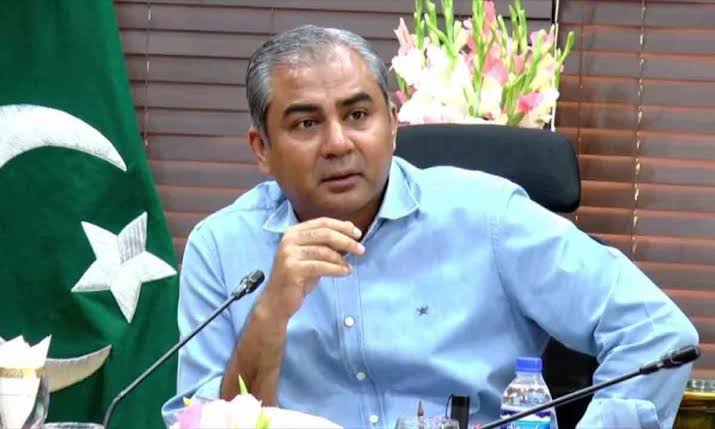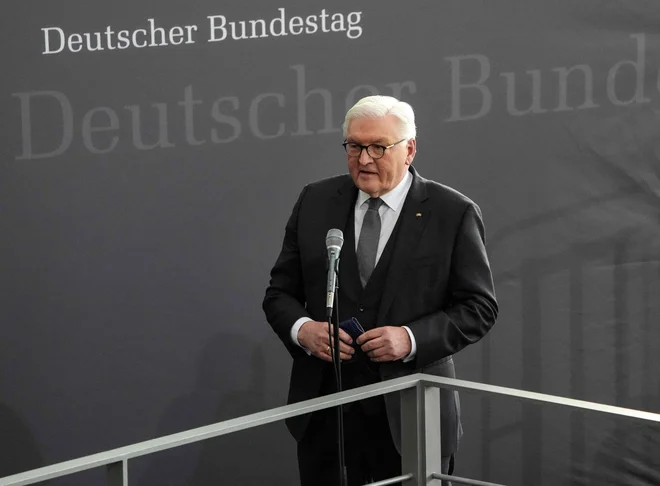The International Committee of the Red Cross said this week it is gravely concerned about the health of two Palestinian administrative detainees held by Israel who have been on a hunger strike for about 80 days.
The two are Kayed Nammoura (Fasfous), a 32-year-old who as of Friday has refused food for 87 days, protesting his continued detention, and Miqdad Qawasmeh, 24, who has been on strike for 80 days.
The two have been hospitalized at Kaplan Medical Center in Rehovot. On September 29, in response to an appeal filed by attorney Jawad Boulos, the Supreme Court ordered Qawasmeh’s administrative detention to be “frozen” due to his deteriorating health. He is not allowed to leave the hospital, though he may have visitors and is no longer chained to his bed.
Another four administrative detainees are also protesting Israel’s jailing of them for an indefinite period without an indictment, evidence or witnesses, while denying them the right to mount a defense.
The four, who are being jailed at a prison clinic in Ramle, are Alla al-A’araj, who has been on a hunger strike for 63 days, Hisham Abu Hawash (on strike for 54 days), Raik Bisharat (49 days) and Shadi Abu Aker (46 days).
The six hunger strikers are among some 520 Palestinians being held in administrative detention in Israeli prisons by orders of the Shin Bet security service, far from the eyes of the Israeli public.
The families of the detainees, who have been banned from visits as part of the Israel Prison Service’s punishment of the hunger strikers, have been told by the lawyers that their sons’ health is deteriorating.
But the families are criticizing not only Israel but also the Palestinian Authority, which they say has not shown any serious interest in the detainees’ fate. Nor has the PA tried to get the Israeli public or international community interested in the strike, or in Israel’s illegal practice of detaining Palestinians without trial, the families say.
Two weeks ago, Fasfous’ mother, Fawzia Fasfous, sought to overcome the helplessness that the families are feeling by traveling from her home in Dura in the southern West Bank to Ramallah. There she stood in Emile Habibi Square, outside the Palestinian prime minister’s office, with a photograph of her son. One of her grandchildren accompanied her.
A protest at a symbol of Palestinian self-rule is a rare event. One of the security guards offered her a chair. Two police officers milled around embarrassed and eventually asked Fawzia to come into the guards’ small building. She refused.

The officers told Haaretz that it was forbidden to photograph the protest but couldn’t explain why. In any case, no Palestinian journalists were covering the quiet demonstration by a mother whose son’s life is at growing risk. “We’re with you – we identify with you,” one of the officers said.
An official in the prime minister’s office eventually convinced Fawzia to come inside the guards’ building, where he told her in a sympathetic voice, “We’re not the address. If, God forbid, your son had been arrested by one of the Palestinian security agencies, we could intervene. But he’s being held by the occupation authorities.”
The mother listened patiently, but when she left the building she told Haaretz, “I’m protesting here because when they want to, they have channels to the occupation authorities.”
She recalled the case of Ghadanfar Abu-Atwan, another administrative detainee from Dura. After a 65-day hunger strike he was released from prison in early August. People in Dura say in complete confidence that he was released because of a phone call by Palestinian intelligence chief Majed Faraj to someone in the Shin Bet.
“The woman is right, ” a senior Fatah member told Haaretz. “Palestinian intelligence officials can talk to the Shin Bet and explain, for example, that hunger strikes by administrative detainees undermine domestic stability and hurt the PA’s standing with its public. This is the kind of reasoning that the Shin Bet listens to.”
Fasfous and Abu-Atwan belong to families linked to Fatah. That makes them an exception among administrative detainees, most of whom the Shin Bet associates with Hamas, Islamic Jihad or the Popular Front for the Liberation of Palestine.
Shortly before Abu-Atwan was released, another striker named Khader Adnan, who is affiliated with Islamic Jihad, was freed after an even shorter term. (But two weeks later, Adnan was arrested for a few days by the PA for taking part in protests against the murder of political activist Nizar Banat.)
Adnan was the first to adopt the hunger-strike tactic some 10 years ago; his protest against detention without trial attracted much attention. But since then, individual hunger strikers haven’t been able to rouse that kind of attention from the Palestinian public or rekindle the international debate on Israel’s continued use of administrative detention.
The hunger-strikers’ families are well aware of this and are torn between their support of the only protest tactic their sons may take, and the knowledge that the strikers’ health will be permanently damaged without achieving their goals. The punishments imposed by the prison authorities – prohibiting family visits, isolation, more frequent searches of their cells – also cause the families to lose sleep.

A wheelchair meeting
The Fasfous and Abu Hawash families have long lived with the reality of administrative detention. “We were engaged in 2007 while Hisham was in jail,” said Abu Hawash’s wife, Aisha, at their home in Dura last month.
In 2004, when he was 22, Hisham was sentenced to three years in prison for his activities during the second intifada. He started his sentence as a Fatah member and, according to his brother Imad, “didn’t like the way the Fatah prisoners behaved and switched to Islamic Jihad.” Still, he’s a liberal Muslim, his brother says.
Hisham has been in administrative detention three times – eight months in 2008, two years between 2012 and 2014, and in October 2020 – each time without being told what he was suspected of and without a trial.
“Soldiers entered the house at 1:30 in the morning; they behaved okay, but they immediately took his phone,” his wife said, recounting his last arrest.
“No Shin Bet officer was with them. Rather, one of them talked with Hisham using one of the soldiers’ phones. He told him that if he’s taking medicine, he should take it with him. Hisham couldn’t say goodbye to our children because he didn’t want to wake them up. He didn’t realize that he was going into administrative detention. He said to me, ‘Take care of the kids and I’ll be back soon, because they have nothing on me.’”
Aisha says her husband always maintains his sense of humor. “Even when we’re talking about serious things, he finds a way to joke about them, even though our situation is difficult. Our 6-year-old son, Iz al-Din, has kidney disease,” she said.
“Since we’ve been married we haven’t taken our children anywhere except Bethlehem because that’s where the doctor is. Hisham has never been abroad. He works all the time, in construction here in Dura. Sometimes, when he finishes early, he’ll take the kids to the store to buy something, and then he goes to sleep,” she said.
“There was a period when he went to work in Israel. He sent us a picture with a rabbi – someone with side locks – in a synagogue he was working on. He promised me he wasn’t involved in any [political] activity, and I believe him. He has to work because Iz’s condition costs us so much money.”
Two months ago, their son underwent surgery in an East Jerusalem hospital, but the procedure wasn’t successful. “Emotionally, I can’t get used to being without Hisham, but I’ve gotten used to managing the day without him,” Aisha said. “If Iz wasn’t so sick, everything would be a lot easier.”
Since her husband was arrested a year ago, Aisha has only been able to visit him once, on August 16. He told her about his plans to launch a hunger strike. “I tried to convince him not to do it, but he said to me, ‘It makes no sense that I was sent back to prison because I didn’t do anything.’” Two days later, he went on strike.

Three weeks ago, his condition was relatively good, even though from the start he refused to take any vitamins. At his last meeting with Boulos, his lawyer, Hisham arrived in a wheelchair.
“I constantly worry that even if they free him they could come and arrest him again at any time,” Aisha said. “That’s the essence of administrative detention without trial.” She understands this well. When her older brother was in administrative detention, he went on a hunger strike that lasted more than 100 days.
Three weeks ago, Aisha promised her children she would bake a cake the moment Hisham was released. Now she only wants her husband to stop risking his life.
The Shin Bet’s aim
Unlike the home of the Abu Hawash family, which lacks any signs of affiliation with any organization, the room where the Fasfous family hosts visitors is filled with Fatah flags and photographs of Yasser Arafat and prisoners. Not only has Kayed been in administrative detention since September 2020, his brothers Mahmoud and Akram have been there for over a year.
Kayed, who before his arrest resumed his university studies in computer science, had been working as a bookkeeper for the Dura municipality. He is married and the father of one daughter, whose heartrending appeal for the release of her father can be found on Facebook.
Another brother was arrested a month and a half ago. He, too, according to his brother Khalid, was put in administrative detention based on secret evidence. Parallel to his administrative detention, he has been charged with offenses such as throwing Molotov cocktails and brawling.

The youngest son of Khalid Fasfous is named Zakaria after the Fatah prisoner Zakaria Zubeidi, one of the six who escaped from Gilboa Prison in August. Khalid once shared a cell with Zubeidi. “Like Zubeidi, we’re the Fatah of Arafat,” Khalid said last month, a few days after the six escapees had been recaptured.
That’s an indirect way of saying that the Fasfous family opposes the current leadership of the PA and Fatah. Khalid says the Palestinian security forces have gone so far as to raid their homes when strains between two factions in Fatah get severe.
His older brother, Hassan, was tried and jailed by the PA after he shot at an Israeli military vehicle in 2013. When Hassan was released from the Palestinian prison, he was immediately arrested by Israel’s Border Police and imprisoned in Israel for three years.
All six Fasfous brothers served several years in prison for their Fatah activities during the second intifada. In 2010, they were all in jail when their father died. Except for Hassan, all of them have also been in administrative detention at one time or another.
I wondered whether there was a connection between their arrests without trial and their membership in the opposition to the official Fatah leadership. Since administrative detention doesn’t require the Israeli authorities to disclose the allegations against the detainees or provide witnesses or evidence, it’s anyone’s guess.
“The armed force that enters our home every time there’s an arrest is always accompanied by a Shin Bet officer named Nir,” Khalid said. “We feel like the Shin Bet has targeted us as a family. Why? I don’t know. Maybe because collaborators are giving them false information.”
Note: This article have been indexed to our site. We do not claim legitimacy, ownership or copyright of any of the content above. To see the article at original source Click Here












